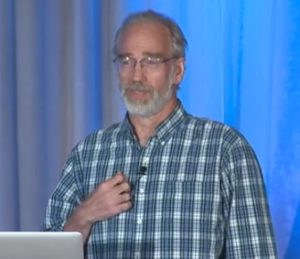
Peter Thompson, Rogue Wave
In this video from the Argonne Training Program on Extreme-Scale Computing, Peter Thompson from Rogue Wave Software presents: TotalView: Debugging from Desktop to Supercomputer.
“TotalView breaks down barriers to understanding what’s going on with your high-scale parallel and multicore applications. Purpose-built for applications using hundreds or thousands of cores, TotalView for HPC provides a set of tools that give scientific and academic developers unprecedented control over processes and thread execution, along with deep visibility into program states and data. By allowing the simultaneous debugging of many processes and threads in a single window, you get complete control over program execution: running, stepping, and halting line-by-line through code within a single thread or within arbitrary groups of processes or threads. You can also work backwards from failure through reverse debugging, isolating the root cause faster by eliminating the need to repeatedly restart the application, reproduce and troubleshoot difficult problems that can occur in concurrent programs that take advantage of threads, OpenMP, MPI, GPUs, or coprocessors.”
The Argonne Training Program on Extreme-Scale Computing (ATPESC) provides intensive, two-week training on the key skills, approaches, and tools to design, implement, and execute computational science and engineering applications on current high-end computing systems and the leadership-class computing systems of the future.
Peter Thompson is the Principal Software Support Engineer for TotalView at Rogue Wave Software. Peter has a Masters in Computer Science from Boston University and has been working in the industry for over 30 years, bouncing between roles in support and engineering. He has been working with a number of debuggers for the past 25 years: dbg with Prime Computer, dbx at DEC, Prism and dbx at Sun, and TotalView for the last 13 years. These days he tends to end up with all the hard questions.




